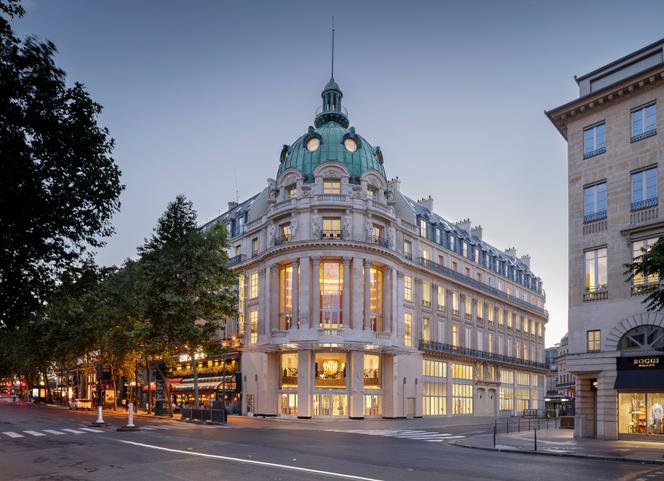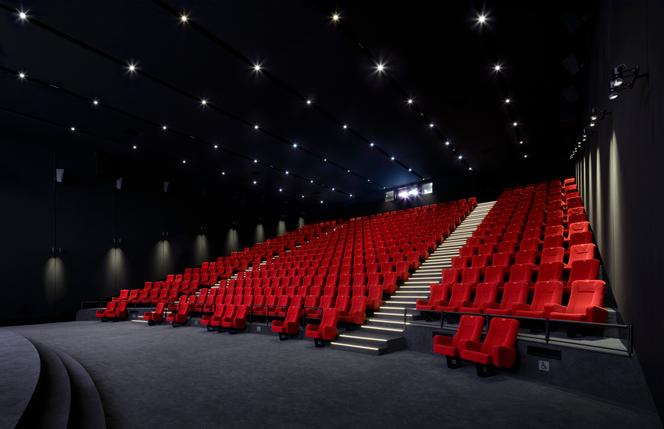


Nowadays, surveillance cameras are as much a part of the urban landscape as the fences that now surround every residential building. Critics have come to accept them as a concession to the times, an imposed detail with which architecture is obliged to come to terms. So why are those guarding the entrance to the Pathé Palace, the Pathé cinema Group's new flagship in the building that once housed the Gaumont Opéra, on the corner of Boulevard des Capucines and Rue de la Chaussée-d'Antin in Paris, so incongruous?
This is because they do not sit comfortably between the paranoid creatures that Roland Barthes might, if he were still alive, have considered a mythology of the present day and the perfectly restored, partially listed freestone façade of this building emblematic of Belle Epoque Paris. A benign interruption, certainly, but one whose reverberation persists throughout the visit, like those spots of light that continue to vibrate once you've closed your eyes. This dissonance acts as a revealer. It makes real the semantic shift that lies at the heart of the high-end cinema project imagined by Jérôme Seydoux, the powerful boss of the Pathé group, for this building he bought in 2017 – and the unease it causes in even the most cinephile visitor.
More than a multiplex, the Pathé Palace is a place where people come for an exclusive experience. Admission costs €25. That may sound expensive, because it is. It deliberately is. It's part of the concept. Because it's not the film you're paying for. It's the fact that you're sitting in a leather club chair, which reclines like a business-class airplane seat, and is heated to boot. It's state-of-the-art projection technology: Onyx LED screens, Dolby Atmos sound, Dolby Vision projection and, soon, even film. It's the concierge service that goes with it, allowing you to order drinks and sweets in advance, have them delivered to your seat before you arrive, have a blanket delivered to your seat once you're in the theater (why such an obsession with audience body temperature?), book a cab, and so on.

The decor plays a part in the experience, representing the signature touches of Renzo Piano, 1998 Pritzker Prize-winning architect, too, who was entrusted with the mission of transforming the building, as well as that of Jacques Grange, an interior designer whose name is enough to evoke the idea of Parisian luxury, recruited to fit out the cocktail bar.
The term exclusivity is not used by accident. It harks back to a golden age of cinema, when prestige cinemas offered films on an exclusive basis at a higher price than those in theatres, where they would later fail. One hundred years on, the meaning of the word has not changed, but its meaning, as used by the exhibitor, is no longer the same.
You have 58.57% of this article left to read. The rest is for subscribers only.
